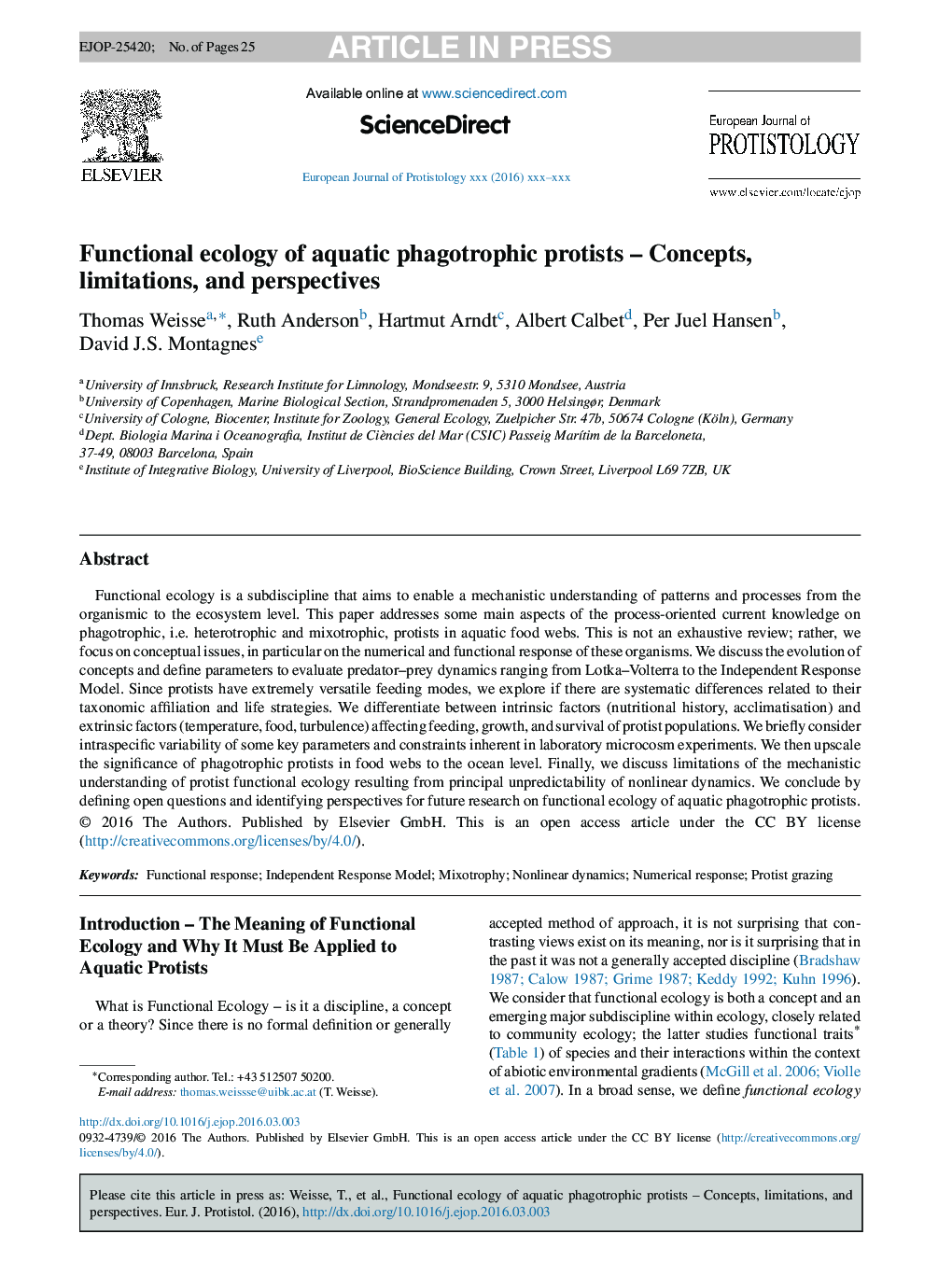| Article ID | Journal | Published Year | Pages | File Type |
|---|---|---|---|---|
| 8382974 | European Journal of Protistology | 2016 | 25 Pages |
Abstract
Functional ecology is a subdiscipline that aims to enable a mechanistic understanding of patterns and processes from the organismic to the ecosystem level. This paper addresses some main aspects of the process-oriented current knowledge on phagotrophic, i.e. heterotrophic and mixotrophic, protists in aquatic food webs. This is not an exhaustive review; rather, we focus on conceptual issues, in particular on the numerical and functional response of these organisms. We discuss the evolution of concepts and define parameters to evaluate predator-prey dynamics ranging from Lotka-Volterra to the Independent Response Model. Since protists have extremely versatile feeding modes, we explore if there are systematic differences related to their taxonomic affiliation and life strategies. We differentiate between intrinsic factors (nutritional history, acclimatisation) and extrinsic factors (temperature, food, turbulence) affecting feeding, growth, and survival of protist populations. We briefly consider intraspecific variability of some key parameters and constraints inherent in laboratory microcosm experiments. We then upscale the significance of phagotrophic protists in food webs to the ocean level. Finally, we discuss limitations of the mechanistic understanding of protist functional ecology resulting from principal unpredictability of nonlinear dynamics. We conclude by defining open questions and identifying perspectives for future research on functional ecology of aquatic phagotrophic protists.
Related Topics
Life Sciences
Agricultural and Biological Sciences
Agricultural and Biological Sciences (General)
Authors
Thomas Weisse, Ruth Anderson, Hartmut Arndt, Albert Calbet, Per Juel Hansen, David J.S. Montagnes,
